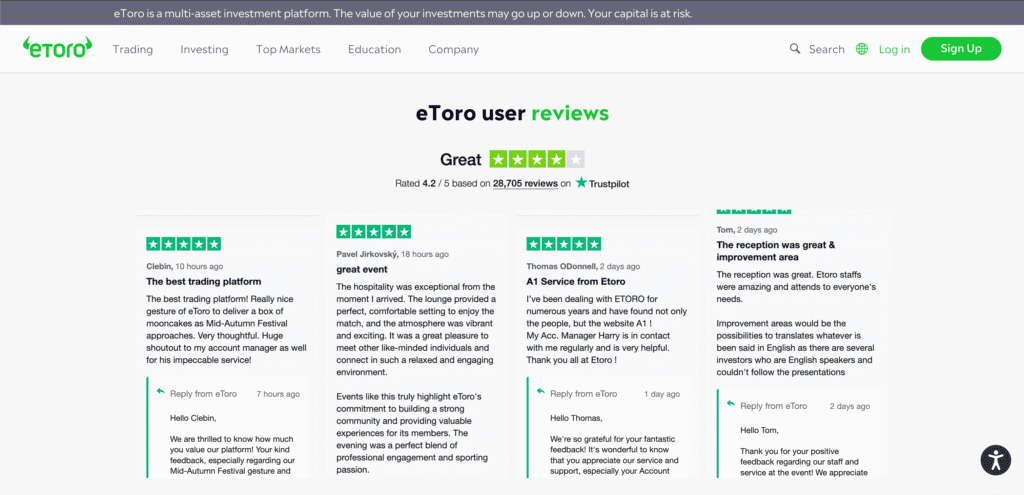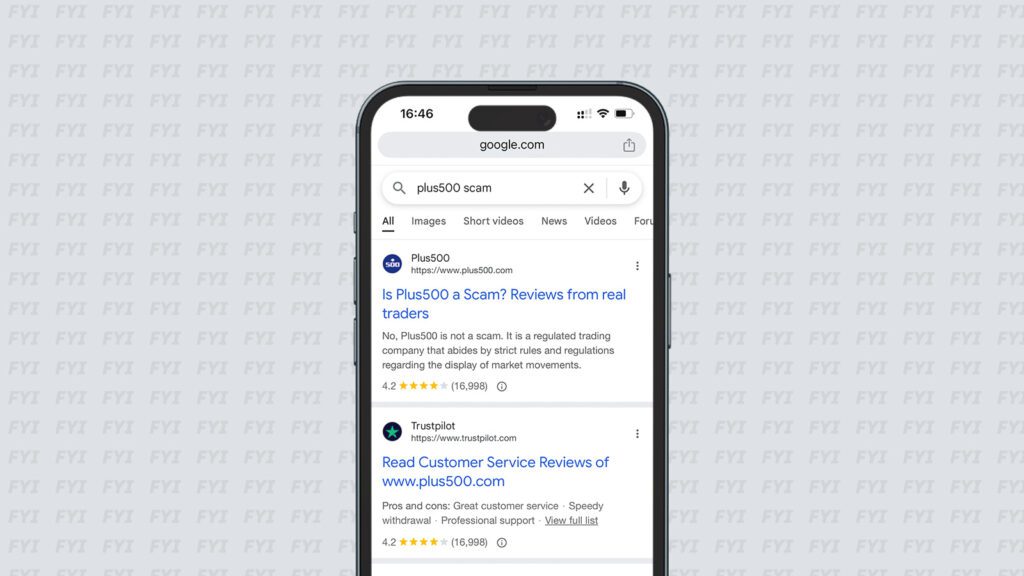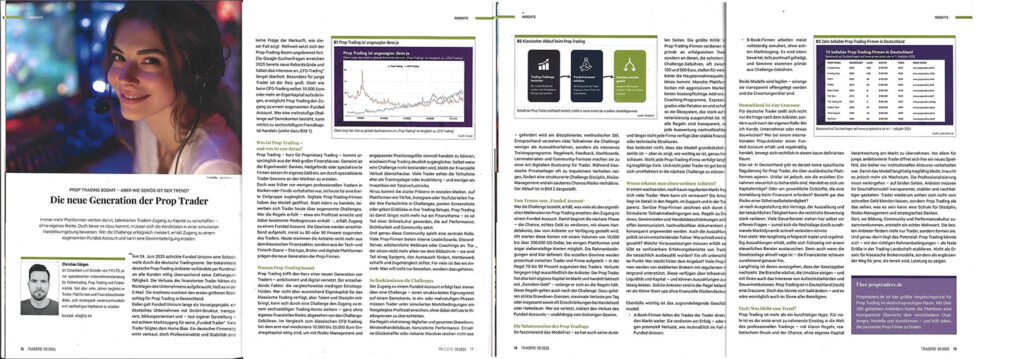Why Online Reputation Management Matters More Than Ever in 2026
Online reputation is not just about fixing reviews on one specific platform anymore. In this article, I take a look at areas that are often overlooked and reveal one SEO strategy you can implement within one week and that can save you a significant chunk of your acquisition costs.
Key Takeways About Online Reputation Management in 2026
- Reputation is no longer shaped by just one review site. With AI-driven search picking up quickly, brand perception in 2026 will depend on many touchpoints.
- Online reputation is a strong trust signal and a real business driver. In a crowded broker and prop firm market, it can directly affect your acquisition costs.
- Clear ownership matters. Someone in your team should be responsible for monitoring reviews and social media, and for driving improvements.
- Affiliates probably capture much of the branded traffic that should be yours. By taking control of the narrative, you can win it back and lower acquisition costs.
What Is Online Reputation Management?
Recently, there’s been a lot of talk about how just a few negative reviews can have an strong impact on a brand’s reputation. Responding quickly is of course important, but looking only at single platforms or isolated comments often doesn’t capture the full picture. Reputation management works best when it’s approached holistically — with a strategy that keeps track of different touchpoints and helps a brand stay in control over the long run.
No single review site has the power to make or break your reputation anymore. Search behavior has changed, and a brand’s perception is shaped across many different touchpoints. With the rise of AI-driven search tools — something that will only accelerate in 2026 — this trend will become even stronger. AI will pull information from multiple sources and create its own summaries, so relying on or worrying too much about one single platform will matter less and less.
What often gets overlooked is that companies themselves carry full responsibility for their own reputation. As a broker or prop firm, it’s important to actively manage how you are seen online and make sure customers encounter a consistent and trustworthy picture of your brand.
Why Online Reputation Management Is Important
In markets where products and services look almost identical — especially in the broker space, where even branding often feels interchangeable — trust signals can make all the difference. They often decide whether a client ends up with you or with a competitor.
Reputation management isn’t a nice-to-have or just about appearances. It plays into the core of how a business operates and how it treats its clients. It also connects closely with regulatory expectations around fairness and transparency, which makes it even more relevant to take seriously.

When products and USPs are similar, trust becomes the real differentiator.
Who Should Own Online Reputation Management?
Even though online reputation has a huge impact on customer acquisition and retention, in many companies it doesn’t have a clear owner. Responsibility often sits somewhere between branding, sales, marketing, and customer support. That’s where the problem begins.
The best step is to appoint one person who is clearly in charge of monitoring and improving online reputation and to give them the authority to act across departments.
If you don’t have the resources internally, you should bring in external support — often at just a fraction of the cost of a full-time position.
Key Areas to Cover for Effective Reputation Management
When people think about reputation management, they usually think of Trustpilot or Google reviews. But it goes much further than that. A proper strategy should also look at:
- Google Play Store and Apple App Store reviews
- Social media activity
- Response times for customer queries
- Active social listening
- Customer testimonials
- Employer branding
- Digital PR
At the end of the day, every company is responsible for how it’s perceived online. There are many ways to shape that perception in a positive way — but in fintech and trading, I often see companies missing even the basics.
Social listening tools like Brand24 help you quickly spot negative sentiment on social media and address it before it spreads. Monitor conversations, react fast, and protect your reputation where it matters most.
Discover Brand24Start Creating SEO Pages for More Branded Keywords
One of the easiest wins in reputation management is to publish a reviews page directly on your own website. Right now, many affiliates and third-party sites are probably ranking for searches like “Brandname + review” or “Brandname + experience.” If you have a strong domain rating and approach this correctly, you stand a good chance of outranking these sites — or at least appearing alongside them in the top results. That means capturing SEO traffic you might currently be paying affiliates for.
A dedicated “Brandname Review” page allows you to take ownership. On this page, you can:
- Highlight your strengths and unique benefits
- Share authentic customer testimonials
- Explain your products and services in your own words
- Address common concerns and show where you’re improving
Done well, this type of page not only attracts traffic that would otherwise go to affiliates but also gives potential customers a transparent and trustworthy impression of your brand. With some basic SEO and internal linking, your own reviews page has a strong chance of ranking high in search — and ensures the story being told about your brand starts with you.

eToro publishes user reviews on it’s website to actively target the keyphrase “etoro reviews”
How to Save Customer Acquisition Costs Through Online Reputation Management
Searches like “Brandname + review” usually come from people who are very close to making a decision. This is high-intent traffic — some of the best-converting visitors you can get.
Right now, many firms let affiliates capture this traffic and then pay them commissions on the very clients that were already searching for their brand. That’s an unnecessary cost.
Of course, you won’t capture 100% of this traffic. Some people will always prefer third-party voices because they don’t want to hear only the positives from the source directly. But if you can take even a share of it back, you’ll reduce acquisition costs significantly and get more control over how your brand is presented.
Targeting Negative Keywords: The Overlooked SEO Strategy
I also wouldn’t stop at “Brandname review.” It can feel counterintuitive, but it’s smart to also target negative keywords.
Think about the mindset of a potential client. Before signing up, they look for reassurance. They want to know if there are red flags: Can I trust this broker or prop firm? Are payouts reliable? What problems have others reported?
That’s why people search for terms like:
- “Brandname scam”
- “Brandname problems”
- “Brandname warning”
If you don’t address these searches yourself, potential clients might only see a random Reddit post or a single angry forum comment. By creating your own pages that target these keywords, you can provide context, explain the facts, and show how you handle challenges. It’s not about pretending everything is perfect — it’s about being transparent and giving people confidence that you’re trustworthy.

Plus500 dominates the search results for ‘Plus500 scam’ with its own SEO page.
Step-by-Step Guide: How to Target Negative Keywords
- Research what people actually search for.
Use keyword tools or even Google autocomplete to find the negative keywords linked to your brand (e.g., “Brandname scam” or “Brandname problems”). - Create dedicated SEO landing pages.
Write content that addresses these terms directly. The key here is balance — you won’t rank if the page is just promotional. Be honest, acknowledge concerns, and explain how your company handles them. - Use internal linking best practices.
A smart move is to create a “Scam Warning” page on your website. Link to it from your footer and other high-traffic pages. This will drive link juice instantly and helps the page rank fast in search results. - Consider external backlinks.
If your domain authority isn’t strong enough to outrank large third-party sites, securing a few quality backlinks to these pages can make a big difference.
By taking these steps, you make sure that when potential clients search for reassurance, they find your side of the story instead of one-sided complaints.
How to Get Started with Online Reputation Management
Like most areas of marketing, online reputation management can quickly feel complex. There are many moving parts — reviews, social media, employer branding — and it’s not always easy to know where to begin.
If you feel overwhelmed or don’t have the resources internally, consider working with external partners who can support you. As a first step, we can help you put together a clear list of priorities and guide you through the process.
Online reputation management doesn’t have to feel overwhelming. In a short discovery call, we’ll look at your current challenges, define clear priorities, and map out the first steps toward a strategy that protects and grows your brand.
Book a Free Discovery CallYou Might Also Like
The New Generation Of Prop Traders
This article was originally published in the September 2025 edition of TRADERS magazine. The version below is an English translation…
Marketing Budget Allocation 2026
With 2026 approaching quickly, now is the time as an Online Broker or Prop Firm to set your marketing priorities…
What’s In For Prop Trading? My predictions for 2026
Prop trading is booming because it solves a problem traditional brokers can't. Beginners want to trade, but they cannot afford…
Dead Props: Over 100 Prop Firms Have Already Disappeared in 2025
Prop firms are easy to launch and often just as quick to disappear. More than 100 prop trading websites went…
The New Generation Of Prop Traders
This article was originally published in the September 2025 edition of TRADERS magazine. The version below is an English translation…
Marketing Budget Allocation 2026
With 2026 approaching quickly, now is the time as an Online Broker or Prop Firm to set your marketing priorities…
What’s In For Prop Trading? My predictions for 2026
Prop trading is booming because it solves a problem traditional brokers can't. Beginners want to trade, but they cannot afford…
Dead Props: Over 100 Prop Firms Have Already Disappeared in 2025
Prop firms are easy to launch and often just as quick to disappear. More than 100 prop trading websites went…







